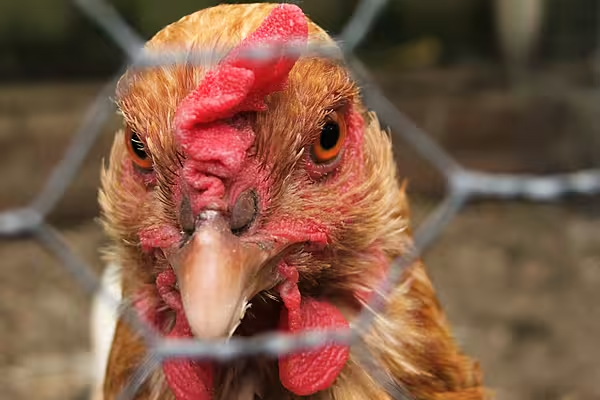Brazil's poultry industry will need to cull 24 million chickens a day from today if suppliers cannot get food to birds because of a truckers' strike, and the government will need to bail out the hardest-hit producers, the country's agriculture minister has said.
The world's top chicken exporter could see a collapse in the poultry sector if the 1.2 million birds that are key to breeding are culled, Agriculture Minister Blairo Maggi said on Wednesday. It could take the industry over two years to recover if that happens, he said.
"If we lose those birds, we lose all ability to recover," he told reporters. "I am very concerned about the livestock sector."
Fuel Prices
Truckers striking over high fuel prices have choked Latin America's largest economy for over a week, leading to fuel and food shortages and hammering exports of everything from soy to beef and cars.
The livestock industry has already lost an estimated 1.3 billion reais because of the strike, Maggi said.
He estimated some 64 million birds had already been culled, a figure a little below the industry estimate of over 70 million. Brazil had about 1 billion chickens before the strike.
Some producers will have lost their working capital and would need financial assistance, he added.
The government would fund any credit it gives to the poultry industry through the existing budget, delaying spending elsewhere, he said.
Soy Exports Delayed
Soy exporters have ships stuck at anchor because they have no soybeans to load at the main ports, Maggi said. He was unable to quantify the cost of delayed shipments to the industry, but said it would be "very large".
Global grain traders Archer Daniels Midland Co and Cargill Inc on Wednesday did not comment on the economic impact due to such delays. Bunge Ltd could not be reached for comment.
But ADM spokeswoman Jackie Anderson told Reuters that trucks are slowly starting to move in Brazil, and the company was already carrying out some shipments.
"Though the recent disruption is still impacting the arrival of raw material to our local processing facilities and ports, and our ability to ship soybeans and finished products to our domestic and export customers, we expect to return to normal operations tomorrow if the situation continues to progress," Anderson said.
Watching Closely
Cargill is monitoring the situation closely and remaining in communication with its customers, a company spokesman told Reuters. The global grain trader has four grain export terminals in Brazil, including one it jointly operates with Louis Dreyfus Co, according to Cargill's website.
Brazil is the world's top soy exporter, and its top buyer is China.
The Latin American country has benefited from a trade dispute between the United States and China as Chinese buyers have sought more cargoes from Brazil as they reduce trade with the United States.
But Maggi said in the long run, the trade dispute could harm Brazil. U.S. soy exporters would seek to sell more in other markets, possibly taking business away from Brazil, he said. If the U.S. and China later resolve their differences and soy trade picks up, Brazil could lose out, he said.
There was no quick fix to European Union restrictions on imports of Brazilian chicken, because the standards the EU had imposed on the occurrence of salmonella in Brazilian shipments were very difficult to meet, he said.
News by Reuters, edited by ESM. Click subscribe to sign up to ESM: European Supermarket Magazine.














